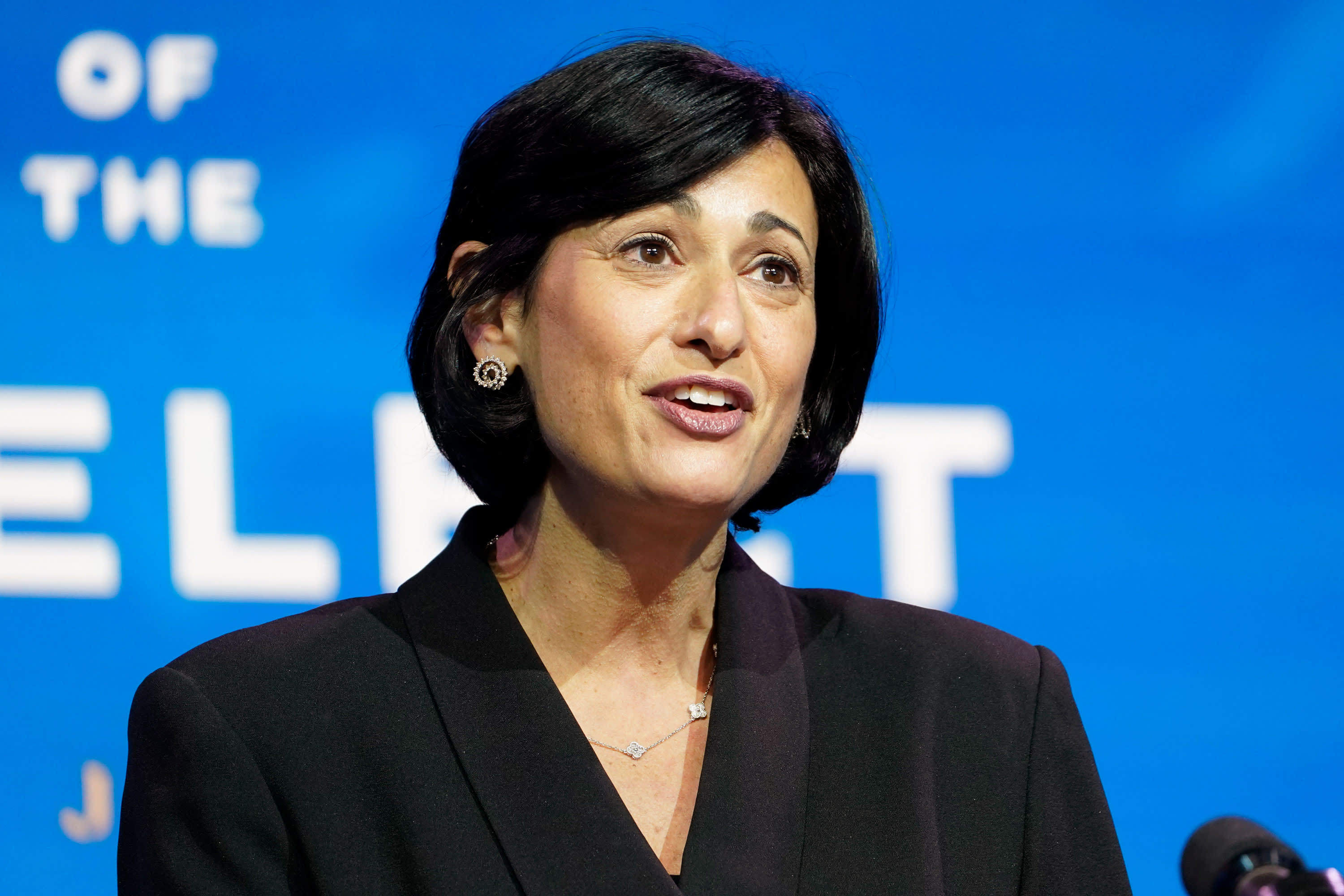
Dr. Rochelle Walensky, who has been selected to serve as director of the Centers for Disease Control and Prevention speaks during an event at The Queen theater in Wilmington, Del., Tuesday, Dec. 8, 2020.
Susan Walsh | AP
The coronavirus vaccines currently on the market should still work against new, more infectious variants discovered in recent months, although they may not be as effective, the incoming director of the Centers for Disease Control and Prevention said on Tuesday.
A handful of new strains of the coronavirus have emerged that have given scientists some cause for concern. While it's no surprise the virus is mutating, researchers are quickly trying to determine what the changes might mean for recently developed life-saving vaccines and therapeutics against the disease.
The currently deployed vaccines have proven to be so effective in clinical trials, the new variants likely won't make them completely ineffective, Dr. Rochelle Walensky, President-elect Joe Biden's pick to lead the CDC, told the JAMA Network. Both vaccines from Pfizer and Moderna have shown to be roughly 95% effective in preventing Covid-19 in large clinical trials.
However, the new strains might cause a dip in how well the vaccines perform outside of those trials. Researchers don't yet know whether the drugs will remain in the highly effective 95% range, or if they'll fall to somewhere around 70%, Walensky said.
"I'm really optimistic about how these variants are going to go," Walensky told the JAMA Network on Tuesday. "I could be wrong. It could be that we'll find variants and variants may emerge ... where the vaccine is less potent, but I'm still currently optimistic."
That doesn't mean people shouldn't get vaccinated because they think the drugs won't be effective against Covid-19, she said. For instance, Americans are still vaccinated against influenza every year even though the vaccine has an effectiveness rate of between 40% to 60%, depending on the year.
"Almost no vaccine we have is 95% effective," Walensky said. "It's going to work against the variant."
Although the new virus strains appear to spread more easily, they don't appear to make infected people sicker or increase someone's chances of death, global health experts have said. However, more cases will ultimately lead to more hospitalizations and deaths if the virus is left to spread unchecked.
It's an acute problem for the U.S. where hospitals have spent weeks responding to record-breaking levels of Covid-19 patients nationwide. So far, the U.S. has identified 122 Covid-19 cases with a variant first identified in the United Kingdom, known as B.1.1.7, according to the CDC's most-recent data.
Despite the low count, the B.1.1.7 variant could become the dominant strain of the virus by mid-March given how quickly the mutated version spreads, according to a new CDC study published on Friday. The study used modeling data that estimated the variant could be roughly 50% more transmissible than current strains.
Enhanced surveillance of the mutations, combined with greater compliance with public health measures, like mask wearing, hand washing and physical distancing, could help slow the virus's spread, researchers said.
Yet part of the problem of finding the variants has been the lack of public health infrastructure in the U.S. to conduct adequate surveillance, Walensky said. The U.S. relies on a patchwork of academic, commercial and public health laboratories to track the variants.
Efforts are underway "to create those connections" between the labs to ensure the U.S. can track strains that "may be coming initially from countries abroad and those that might be emanating from our own country," Walensky said.
January 20, 2021 at 03:55AM
https://ift.tt/3itE2n5
Biden's incoming CDC director says she's 'optimistic' Covid vaccines will work against new variants - CNBC
https://ift.tt/2VuKK1x
Work

No comments:
Post a Comment